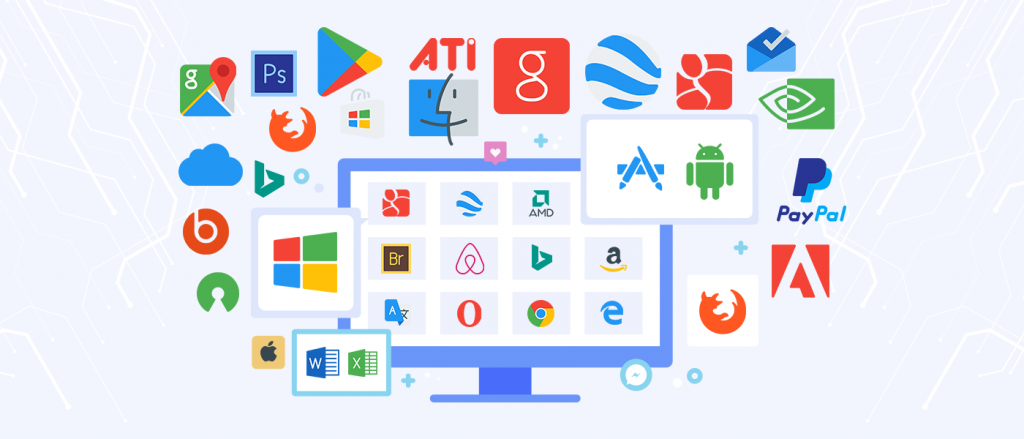Introduction
In today's digital age, software applications and tools have become an integral part of our daily lives. While popular software like Microsoft Office, Google Chrome, and Adobe Photoshop are well-known and widely used, there's a plethora of lesser-known yet incredibly useful software and tools that can simplify tasks, boost productivity, and enhance your digital experience. This article explores 100 unique and lesser-known software applications and tools across various categories, providing detailed descriptions for each.
Productivity and Organization:
- Turtl: A secure note-taking app with end-to-end encryption.
- Standard Notes: An open-source, encrypted note-taking app.
- Notion: An all-in-one workspace for notes, documents, and databases.
- RescueTime: Tracks your digital habits and helps you improve productivity.
- FocusWriter: A distraction-free writing environment.
- Airtable: A flexible, collaborative database.
- Todoist: A task management app with intuitive features.
- Scapple: Mind mapping tool for brainstorming and organizing ideas.
- Rainlendar: A customizable desktop calendar.
- Marvin SxS: Task manager and timer for effective time management.
Creativity and Design:
- Gravit Designer: A free vector design tool.
- Krita: A powerful open-source digital painting software.
- Inkscape: A versatile vector graphics editor.
- BlackInk: A unique digital painting experience.
- G'MIC: Image processing framework for creative effects.
- Piskel: An online pixel art and sprite editor.
- Artweaver: A Windows-based painting program.
- Tinkercad: A web-based 3D design application.
- Paint.NET: A user-friendly image and photo editing software.
- Serif DrawPlus: A vector drawing program.
Utilities and System Enhancement:
- F.lux: Adjusts your computer's display to reduce eye strain.
- Ditto: A clipboard manager for managing multiple clipboard entries.
- ShareX: A comprehensive screen capture and recording tool.
- Dexpot: A virtual desktop manager for Windows.
- WizTree: Quickly identify and manage large files on your PC.
- Everything: Lightning-fast file search tool for Windows.
- Dukto: Easy file and text transfer between devices.
- AutoHotkey: Automate repetitive tasks and create custom shortcuts.
- Greenshot: Feature-rich screenshot tool.
- DisplayFusion: Multi-monitor management software.
Communication and Collaboration:
- Mumble: An open-source, low-latency voice chat software.
- Wickr Me: Secure, private messaging and file sharing.
- Trello: Collaborative project management tool.
- Zulip: An open-source group chat application.
- Wire: A secure messaging app with end-to-end encryption.
- Bitrix24: Free collaboration and communication platform.
- RealtimeBoard: A virtual whiteboard for visual collaboration.
- MindMeister: Online mind mapping and brainstorming tool.
- Twist: Communication app for productive teams.
- Xmind: Mind mapping and brainstorming software.
Web Browsing and Internet Tools:
- Vivaldi: A highly customizable web browser.
- Pocket: Save, read, and discover interesting content.
- Grammarly: Grammar and spelling checker for writing.
- LastPass: Password manager and secure vault.
- Feedly: A customizable RSS reader.
- DuckDuckGo: A privacy-focused search engine.
- Hootsuite: Social media management and scheduling.
- ManicTime: Time tracking for computer usage.
- StayFocusd: Limit time spent on distracting websites.
- Blisk: A web browser for web development and testing.
Education and Learning:
- Anki: A powerful, customizable flashcard app.
- Wolfram Alpha: A computational knowledge engine.
- EdX: Online courses from top universities.
- Duolingo: A fun and effective language learning platform.
- Tinkercad: Learn 3D design and modeling.
- Codecademy: Interactive coding lessons.
- Khan Academy: Free online courses and educational content.
- Udemy: A vast selection of online courses.
- GeoGebra: Mathematics software for learning and teaching.
- Rosetta Stone: Language learning software.
Entertainment and Media:
- Plex: Organize and stream your media collection.
- MPC-HC: Lightweight media player.
- Audacity: Open-source audio editing software.
- OBS Studio: Free and powerful video recording and streaming.
- Plexamp: A minimalist music player.
- DaVinci Resolve: Professional video editing and colour correction.
- AIMP: Audio player with support for various formats.
- CDBurnerXP: CD, DVD, and Blu-ray burning software.
- Shazam: Identify music with a single tap.
- Stremio: A media centre for video content.
Security and Privacy:
- VeraCrypt: Open-source disk encryption software.
- KeePass: Free, open-source, and secure password manager.
- PeerBlock: Block unwanted IP addresses from connecting.
- Signal: Encrypted messaging and calling app.
- CyberGhost VPN: Protect your online privacy and browse anonymously.
- GnuPG: Email and data encryption tool.
- GlassWire: Network monitoring and security software.
- ProtonMail: Secure email service with end-to-end encryption.
- qBittorrent: Lightweight, open-source torrent client.
- Secure Eraser: Securely delete files and data.
Developer and Coding Tools:
- Visual Studio Code: A highly customizable code editor.
- Postman: Simplify API development and testing.
- Sublime Text: A sophisticated text editor for code, markup, and prose.
- TortoiseGit: A Git client for Windows.
- GitKraken: A Git client with a visual interface.
- DBeaver: Universal database tool for developers.
- Glitch: Create and share web apps in your browser.
- Sourcetree: A Git and Mercurial client for Windows and macOS.
- Cloud9: An online code editor and development environment.
- Atom: A hackable text editor for the 21st century.
Health and Wellness:
- MyFitnessPal: A popular app for tracking nutrition and exercise.
- Relax Melodies: Customize your own sleep and relaxation soundscapes.
- Medisafe: Medication management and pill reminder.
- Headspace: Meditation and mindfulness app.
- Calm: Relax with soothing sounds and guided meditation.
- Fitbod: Personalized workout plans and fitness tracking.
- Flow: A menstrual cycle tracker and period calendar.
- QuitNow!: A quit smoking app to help you quit for good.
- Sleep Cycle: Analyze and improve your sleep quality.
- Insight Timer: A free meditation app with thousands of guided sessions.
Conclusion
These 100 software applications and tools represent just a fraction of the vast world of technology designed to enhance various aspects of our lives. From boosting productivity to fueling creativity, safeguarding privacy, and promoting lifelong learning, these lesser-known gems offer a multitude of features and benefits that can significantly improve your digital experience. Whether you're a student, professional, or simply someone looking to make the most of your computer, exploring these options can be a game-changer in your tech-savvy journey.

Comments
Post a Comment